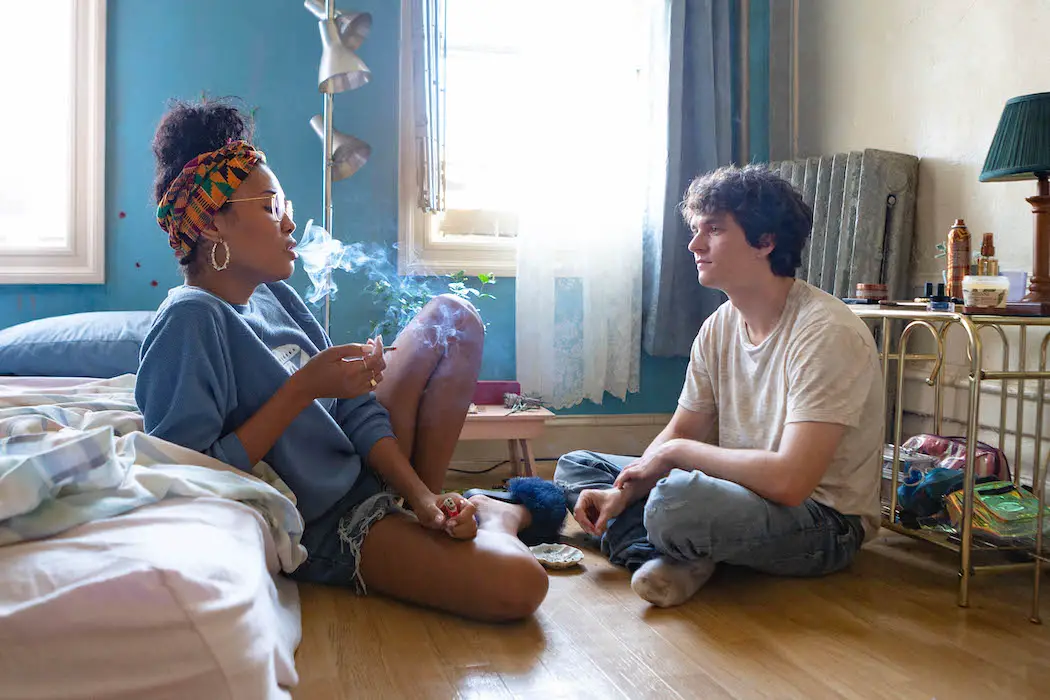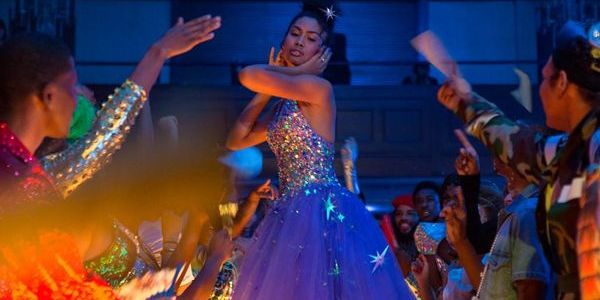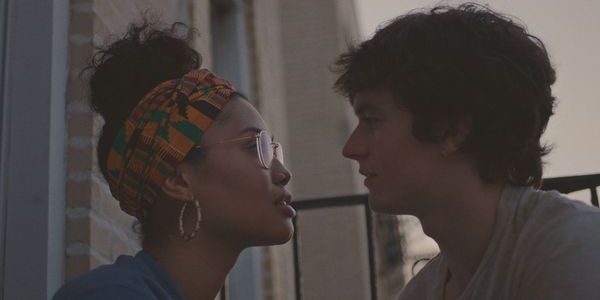PORT AUTHORITY: In Conversation with Danielle Lessovitz

Just a plain ol' country boy living in the big…
Executive produced by Martin Scorsese and hot on the heels of the third and final season of FX’s knockout series POSE, Danielle Lessovitz’s Port Authority, a trans-romance set amongst NYC’s ballroom scene, has finally been snatched up for distribution and will be opening in select theatres May 28th and On Demand & Digital June 1st. Prior to its release, Film Inquiry’s Marc Ricov spoke to the filmmaker about the journey that brought her debut feature to life and what it means to be an American in today’s social climate.
Marc Ricov from Film Inquiry: Hi Danielle, thank you for taking the time to speak with me. I would first like to ask…even though you had worked on multiple projects before Port Authority, what made you want to tell this story specifically? For a first film, it feels incredibly intimate and it’s really quite impressive.
Danielle Lessovitz: Oh, thank you. Well, it was kind of my way of exploring American individualism and how isolated they are, and I just think I wanted a way of talking about that. Like, if I go to Europe or any other country, there’s this culture that seems to be missing here in the states. And I get that we have this great market and system for working, but what happens if you don’t have a great family – where do you belong in this country? So it was ‘belonging’…it’s funny, I think the big irony of the U.S. is that – and maybe I’m being too general – but I think in the popular imagination and what we’re told when growing up, is that it’s a place that anyone can come to and have a spot, but at the same time, it’s a place where nobody belongs. If that makes any sense? Unless you have a micro-culture, but if you don’t, you’re really screwed.
Absolutely, yeah.

Danielle Lessovitz: My father didn’t raise me, but I met him when I was nineteen and for me he looked like someone who was very alone in life and didn’t really belong anywhere, and he took his life not too long before the film. And it was that too, like…people can really fall through the cracks in the U.S. in ways I haven’t seen in other countries. And this idea of “be tough, be strong, pull yourself up by your bootstraps” is not tenable anymore. I just think that we need each other and it’s bad for some people when it’s not necessarily their fault and they should really have the support of a government or a system to build themselves back. I think, mentally, it was about an American identity that I felt had gone too far away from ideas of shared humanity and thinking about ourselves as a community that has vulnerable members that aren’t obvious, who have been indoctrinated when they should be strong individuals when that’s not always the case or possible. I don’t want to ramble, but-
No! You’re giving me so much great information, it’s really insightful. It’s the best answer I could have gotten.
Danielle Lessovitz: (Laughs)
It’s interesting that you say that though…that kind of reminds me of the central relationship between Wye and Paul in the film…even though the story is based around the trans community and a trans character, for me – when I was watching it, it was less about that and more about finding a connection with someone regardless of what they are. And I feel like that’s what you might have been going for and I hope that it is because that’s what I picked up on. It was really powerful to me, that, at the end of the day, it doesn’t matter who you are or where you come from, the empathy and connection you can feel when you meet someone in the unlikeliest of places – and of course, New York is a brilliant place to tell a story like that because there are so many different types of people – that these two people from two different worlds met each other, and none of that stuff mattered. It really shows when you watch the film and I think that’s why you’ve hit the nail on the head and why it feels so intimate.
Danielle Lessovitz: Yeah, I see that too. I mean, there’s been a lot of films about the trans experience and the threat that the word poses when you are trans, and I felt tired of that representation personally. I’m happy that characters are seeing more light and are having more visibility, but I think we’re not all defined in complicated ways. Being transgender is just an aspect of that – not the whole, entire nature of our beings. I wanted to share a trans character that wasn’t necessarily defined by pain – but by resilience, and was someone who felt comfortable in their skin, and felt strong in who they were as opposed to someone who was struggling to achieve that, and to show someone who was an insider or a benefactor of a dominant culture. You know, like American culture; how they aren’t comfortable in their skin and they hide their deeper selves in order to fit in and belong. To sort of look at that and create a feeling where we aspire to be more like Wye and her family, to claim our humanity and to resist environmental spaces that would prevent that from happening, if that makes any sense? I feel like I’ve rambled a lot (laughs endearingly).
No, don’t say that, it’s great, I love hearing it! And actually, before I forget, you kind of brought up one of the questions I had for you before. It’s a little bit off-subject from what we were just talking about, but at the beginning of our conversation you mentioned the cultural aspect of being an American and how looking at films from Europe or if a film is seen in Europe, it gets a different response. And your film has a very European feel to it, or style to it, should I say. Surely you might have been told that before? Because I watch a lot of independent films and when I was watching yours I was thinking that it feels like it’s made by a European filmmaker. Do you know where I’m coming from? And I was wondering, do you have any European influences in your work?
Danielle Lessovitz: Yeah, to be honest, it’s one of those things where, I grew up seeing filmmaking as something that wasn’t accessible to me, or moviemaking in general – ‘Hollywood’. It was only in seeing arthouse films where I was like “Oh, this is something else, this is different to the films I grew up watching, and maybe this is something I can participate in”, because the scale of them is more human. I think I was in my late teens/early twenties and I almost in a way stopped watching American films and started watching Italian Neo-realism and the French New Wave –

Yeah, I think most film students go through that phase and you either get hooked or it’s just not your thing –
Danielle Lessovitz: Yeah! Exactly. And, you know, even Jane Campion and all of those directors…and there’s something about American cinema (and hopefully it’s changing) is this sort of like ‘American exceptionalism’ where characters go through lots of hardships and overcome them, and then gain status and win in the end. It’s sort of like weird American propaganda. It goes back to this idea that you’re supposed to believe that everyone is for themselves and if you can’t fix it because something is wrong with you, people should be able to overcome all the obstacles that are in their way, and I just don’t find that very fulfilling or honest. I do find that in European films, they do approach the more difficult things about life and their cultures in ways where they are not sugarcoating things, and are allowing for darker moments to exist and allow for feelings that are unresolved to exist, and they are showing what is broken about their world in ways that I really appreciate because you can have conversations about it. In that sense, I really do have a repulsion for anything that sugarcoats things and suggests there are always happy endings or a resolution. In that way, I guess it’s closer to European tradition.
Yeah absolutely. That’s great. Just quickly, I wanted to touch on working with Leyna and Fionn being involved in the production and it being your first feature film. Do you feel like everyone involved help paint the perfect picture and allowed it to come to life exactly how you wanted it to? Were you happy with the overall picture?
Danielle Lessovitz: Yeah, I’m really happy with it. It’s very different to what was in my head.
Oh, that’s interesting…
Danielle Lessovitz: I really wanted everyone who was there to feel entitled to bring to life the characters they were asked to carry. Leyna gave me so much material on set, like everything she did, every performance she had, was sort of new and fresh and showed so many possibilities for ‘Wye’ her character. When I say it was different to what was in my head, it was more alive and living than what was in my head, you know. It hadn’t yet found the people to inhabit it. And Fionn’s interpretation of Paul was also different to my interpretation, and I was really fascinated to watch him through the process and see what he came up with and created himself and it was really brilliant, and it was kind of the same with all the characters. I created…how do you say…a sort of…a trap? My job was to capture life. You know, capturing something where life could just be.

It does have a very naturalistic feel to it, for sure. That’s really cool.
Danielle Lessovitz: Yeah. I just watched it become itself. It’s true, I think, if you’re present to what’s going on around you and allow for chaos, you can kind of shape it into something that has order, as opposed to expecting things to be ordered and shaping it from there.
Cool, I love that. Well, I leave it there, but all I can say is I’m really looking forward to what you’ve got planned next. I won’t ask, because I want to be surprised, but definitely keep up with making lots of films because I love your style and it’s not just something that America needs, but Australia definitely does too (laughs).
Danielle Lessovitz: (Laughs) Yeah. I haven’t been to Australia, but we do kind of come from the same British path, maybe, I don’t know.
Yeah, it kind of feels like we can lack a bit of culture and it’s so nice when we can get a dose of it. But yeah, thank you so much!
Danielle Lessovitz: Yeah, it was a pleasure. I really enjoyed this conversation. Thank you.
We’d like to thank Danielle Lessovitz for being such wonderful company and taking the time to speak with Film Inquiry.
Does content like this matter to you?
Become a Member and support film journalism. Unlock access to all of Film Inquiry`s great articles. Join a community of like-minded readers who are passionate about cinema - get access to our private members Network, give back to independent filmmakers, and more.
Just a plain ol' country boy living in the big city with even bigger dreams. Film obsessed and 100% dedicated to surrounding myself with all forms of art 24/7. I love to write as a creative outlet, and share my thoughts and ideas about the world of cinema with likeminded individuals.













